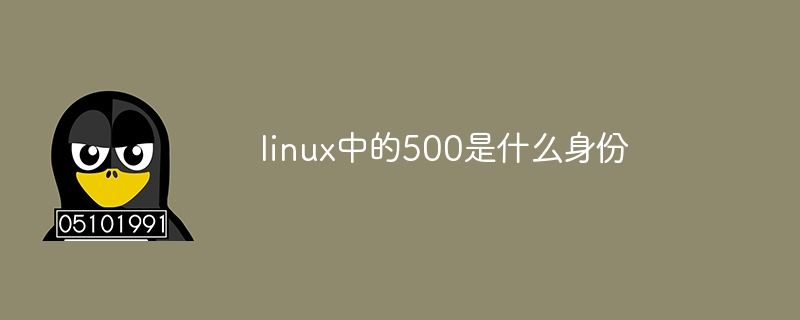
500 in Linux means that the owner has read and execute permissions "5", while the group and others do not have any permissions "0". 500 is one of the permissions of a file or directory. In the Linux file system, each file and directory has an access permission associated with it. These permissions specify the read, write and execute permissions for the file or directory.

The operating system of this tutorial: Linux5.18.14 system, Dell G3 computer.
In Linux, 500 is one of the permissions of a file or directory. In a Linux file system, each file and directory has an access permission associated with it. These permissions specify read, write, and execute permissions on a file or directory.
In Linux, permissions are represented by three different identity combinations: owner (Owner), group (Group) and others (Others). Each identity can have read, write, and execute permissions.
Numeric notation is used to represent these permissions. In numeric notation, each permission is assigned a value:
4 means read permission (Read)
2 means write Permissions (Write)
1 represents execution permissions (Execute)
These values can be combined to represent different combinations of permissions. For example, here are some common permission combinations and their corresponding numerical representations:
Read and write permissions: 4 2 = 6
Read and execute permissions: 4 1 = 5
Read, write and execute permissions: 4 2 1 = 7
None Permissions: 0
When the numerical permission is 500, it means that the owner has read and execute permissions (5), while the group and others do not have any permissions (0). Please note that this is just an example and actual permission values will vary depending on the file or directory.
The above is the detailed content of What is the identity of 500 in Linux?. For more information, please follow other related articles on the PHP Chinese website!